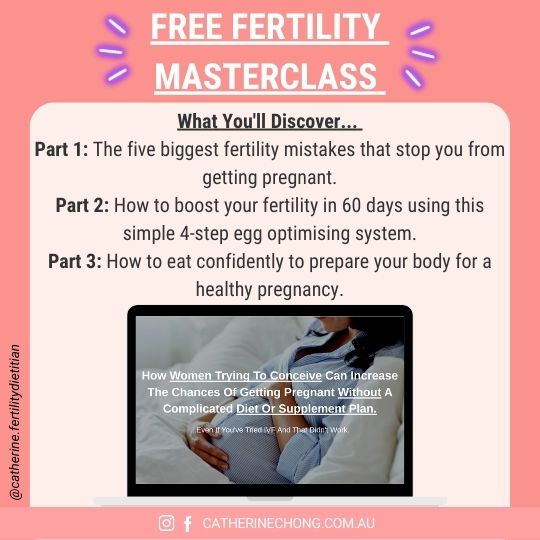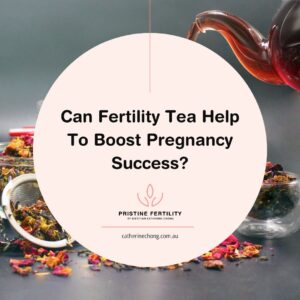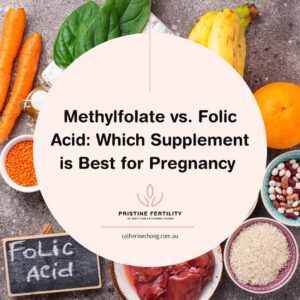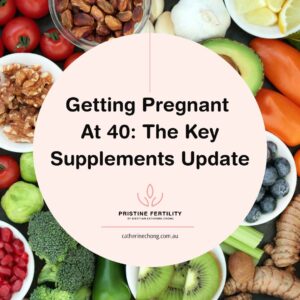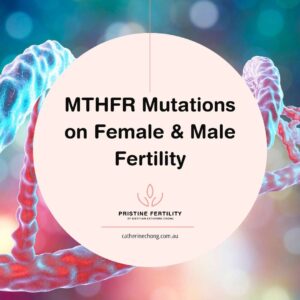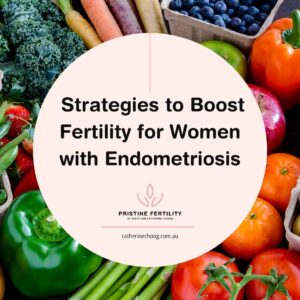Boosting Egg Quality With Low AMH: Strategies For Enhancing Fertility
Navigating the journey to conception with low Anti-Mullerian Hormone (AMH) levels can be challenging, but there is hope. Adopting specific diet and lifestyle modifications to improve egg quality can enhance your fertility and boost your chances of achieving a successful pregnancy.
What Is AMH?
AMH (Anti-Müllerian Hormone) is a hormone produced by the ovarian follicles and is used as an indicator of ovarian reserve, which is a woman’s remaining egg supply. It is done through a blood test that measures these hormone levels, and the remaining pool of eggs can be determined.
Understanding AMH levels is vital for women trying to conceive because women are born with a limited number of eggs that cannot increase throughout their lives.

On average, a female fetus will have approximately 1-2 million immature eggs, gradually declining to around 300,000-500,000 at puberty. From that point on, a woman will continuously lose eggs through an ovarian follicular atresia process, which means the degeneration of ovarian follicles that contain immature eggs.
Rates of decline can vary between women and increase with age, particularly after 35. Up to 10% of women experience egg loss at an accelerated rate, which differs from males, who continue to produce sperm throughout their life.
The rate of egg loss can vary based on factors such as genetics, lifestyle, and environmental exposures. While it’s impossible to increase the number of eggs a woman is born with or halt the natural aging process, steps can be taken to optimise reproductive health and improve fertility outcomes at any age.
Improving AMH Levels Naturally: What You Need to Know
It’s important to understand that AMH levels can fluctuate naturally from month to month, with some months showing higher levels of AMH and more maturing eggs than others. Additionally, women with Polycystic Ovarian Syndrome (PCOS) may have elevated AMH levels, making it less reliable as a predictor of ovarian reserve.
While there is no definitive evidence that diet can directly improve AMH levels, specific dietary and lifestyle factors may help to support ovarian function and overall reproductive health, which may indirectly impact AMH levels.
It’s important to remember that you only need one good egg to conceive. For this reason, the focus of low AMH treatment often centres on improving the quality of existing eggs rather than the quantity, as quality is a more critical factor for pregnancy success.
How To Improve Egg Quality With Low AMH
One of the most effective ways to increase your fertility if you have low AMH levels is to ensure sufficient nutrition in your diet. Incorporating nutrient-dense foods into your diet is essential, as they can provide important vitamins and minerals that may improve fertility.
1. Limit your intake of saturated and trans fats:
Saturated and trans fats, commonly called “bad fats,” have been associated with adverse effects on female fertility and overall health.
Trans fats, in particular, have been linked to insulin resistance, impaired ovulatory function, and infertility.
Examples of trans-fat-containing foods include:
- Deep-fried foods
- Biscuits, cakes and pastries
- Butter
- Takeaway foods, such as burgers, pizza and hot chips
- Foods that contain ‘hydrogenated oils’ or ‘partially hydrogenated vegetable oils on the ingredients list
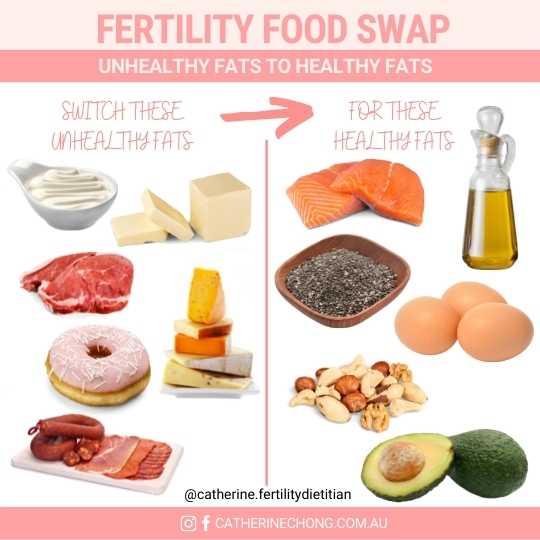
Similarly, a high intake of saturated fats has been linked to increased inflammation within the body, including the fluid surrounding the eggs, which can impede their development and lower the chances of conception.
Foods commonly high in saturated fats include:
- Fatty meat
- The skin on poultry
- Processed or deli meats such as salami, ham and bacon
- Butter
- Coconut oil
- Palm oil
- Lard, ghee, copha, dripping
- Cream
- Ice-cream
- Processed foods like biscuits, cakes, pastries, pies and takeaway meals
2. Getting enough folate
Ensuring adequate folate intake is crucial for enhancing fertility. Folate is a vital nutrient during pregnancy and improves fertility by increasing egg quality and quantity.
Folic acid, a synthetic form of folate, is usually available in supplements or fortified foods. Its consumption helps develop the fetal neural system and spinal cord during early pregnancy.
Studies have shown that folate may have beneficial effects on fertility. One study found that folic acid supplementation effectively reduced homocysteine concentrations associated with better egg quality and higher egg maturity, suggesting that folic acid supplementation may improve IVF outcomes.
Here are some examples of foods that help to boost folate naturally:
- Liver
- Black beans, lentils, chickpeas, peanuts, hazelnuts, sunflower seeds
- Seaweed, spinach, asparagus, broccoli, brussels sprouts, lettuce
- Avocado
While the liver is a natural source of folate and can boost fertility, it is essential to note that excessive consumption during pregnancy is not recommended due to its high vitamin A content (in the retinol form). Consuming too much vitamin A during pregnancy can lead to congenital disabilities and other complications.
To prevent birth defects, it is recommended that all women of reproductive age take at least 400 micrograms (mcg) of folic acid daily for at least three months before pregnancy.
3. Sufficient vitamin D level
In addition to folate, another nutrient strongly linked to AMH levels is vitamin D. Research has shown that low vitamin D levels are related to a lower AMH level.
While the primary source of vitamin D is natural sunlight exposure, it can be challenging to get enough vitamin D solely through sunlight, especially for individuals who live in areas with limited sunlight exposure or wear clothing that covers their skin. Therefore, getting your blood vitamin D levels checked regularly and discussing with your healthcare provider if you need to start taking vitamin D supplements to treat vitamin D deficiency is essential.
Adequate vitamin D levels can also improve overall reproductive health and increase the likelihood of conception. Additionally, incorporating vitamin D-rich foods into your diet, such as fatty fish, egg yolks, and fortified dairy products, can help increase your vitamin D intake.
4. Increase your zinc intake
While limited research is available on the association between zinc and AMH, zinc plays a crucial role in various aspects of female reproduction, including hormone regulation, follicular development, and oocyte maturation.
Here are some dietary sources of zinc:
- Oysters, blue crab and shrimp, as well as fish such as sardines
- Beef, pork and turkey
- Beans and lentils
- Peanuts and pumpkin seeds
It is also important to note that the bioavailability of zinc from plant-based sources is generally lower than from animal-based sources. This means that even if you consume zinc-rich plant foods, you may still not absorb sufficient amounts of zinc. As with any dietary supplement, discussing it with your fertility dietitian before starting any zinc supplementation is best.
5. Minimise the exposure to BPA
Bisphenol-A, or BPA, is a harmful chemical frequently found in plastics and resins used in various food and beverage packaging types. Multiple studies have revealed that exposure to BPA can disrupt the female reproductive system by diminishing egg quality and impeding egg maturation.
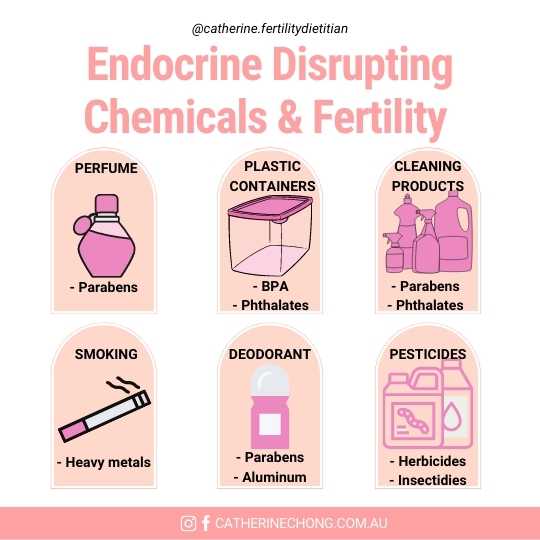
The best ways to minimise exposure to BPA are:
- Avoid storing or heating food in plastic containers. Use glass, ceramic or stainless steel containers for leftovers.
- Don’t microwave food in plastic containers or cover it in plastic wrap.
- Consume fewer drinks packaged in cans or plastic bottles.
6. Maintaining a healthy weight
Maintaining a healthy weight through a well-balanced diet and regular exercise is essential for promoting overall health and optimising fertility.
Rapid weight loss can negatively affect fertility and AMH levels if not done correctly, as inadequate consumption of nutrients and energy can be detrimental. Therefore, it is essential to pursue weight loss healthily.
For those with polycystic ovarian syndrome (PCOS), low-impact exercises such as walking three times a week can positively impact fertility hormones and AMH levels, according to studies.
Bottom Line:
- AMH is an indicator of ovarian reserve and can help determine the remaining supply of eggs.
- Although it’s impossible to increase the number of eggs a woman is born with or halt the natural aging process, specific dietary and lifestyle factors may support ovarian function and overall reproductive health.
- Nutrient-dense foods can provide essential vitamins and minerals that may improve fertility, such as limiting the intake of saturated and trans fats and ensuring adequate folate, vitamin D and zinc intake.
- Limiting exposure to BPA and maintaining a healthy weight is crucial for overall health and fertility.
- It is recommended that all women of reproductive age take at least 400 micrograms (mcg) of folic acid daily for at least three months before pregnancy to prevent birth defects.
Need More Help?
Are you seeking additional support and guidance in optimising your fertility through a personalised nutrition plan?
Schedule a nutrition consultation today and take the first step towards achieving your fertility goals.
You May Also Be Interested In
Disclaimer: Content on this website is provided for information purposes only and should not be replaced with medical advice. We recommend you discuss with your healthcare providers (doctor, dietitian, pharmacist, etc.) any medical questions for diagnosis and treatment, dietary plan, or use of any medications and nutritional supplements before you make any changes. DietitianChong Pty Ltd shall not bear any liability for reliance by any user on the materials contained on this website.

